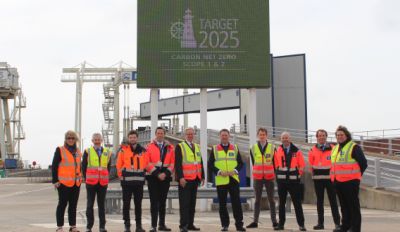Archives
Feature, Freight News, Sea
Dover unveils decarbonisation plans
[ May 3, 2022 // Chris ]Dover has announced three targets for decarbonisation, that it says will put it at the vanguard of the UK ports industry and help position Britain deliver one of the key COP26 commitments.
It aims to be carbon net zero by 2025 under Scope 1 and 2 of COP26 and by 2030 for Scope 3 emissions.
Scope 1 covers direct emissions from owned or controlled sources. Scope 2 covers indirect emissions from purchased energy while Scope 3 includes all other indirect emissions that occur in a company’s value chain.
With £144 billion of trade, the Port of Dover handles almost 60% of all ferry journeys between the UK and Europe which carry around one-third of all trucks using major UK seaports. It is also a leading cargo and cruise port.
The trust-operated port says it has already reduced its carbon footprint by 85% since 2007.
Chief executive, Doug Bannister, said:
”Dover is located at a critical intersection where global trade routes meet the primary gateway between the UK and its main trading partner, the EU. Having the fastest transit times and the most frequent services situated next to the world’s busiest shipping lane, we already lead the way in how much activity takes place here. We can and must, therefore, also lead the way by delivering a profound improvement in the overall carbon footprint of UK supply chains, which we can do much faster because of our geographic advantage.”
The port has also set itself a target to become the world’s first high-volume Green Shipping Corridor as part of the Department for Transport’s Maritime 2050 strategy, the Clean Maritime Plan and the Clydebank Declaration announced in Glasgow at COP26.
The targets were unveiled during a visit to the Port by Maritime Minister, Robert Courts MP. Minister Courts, who said: “I welcome the Port of Dover’s commitment to champion the crucial journey to decarbonisation. The challenging targets demonstrate the leading role Dover wishes to take in delivering our Clean Maritime Plan and ensuring Britain remains at the forefront of the maritime industry in tackling this global issue.”
The targets will be pursued through a combination of activities such as sourcing alternative fuels, using renewable energy sources, port electrification, offsetting and minimising carbon emissions in procurement and development projects, and through partnership working with stakeholders including community, supply chains, sister ports and customers.

Tags: Port of Dover











